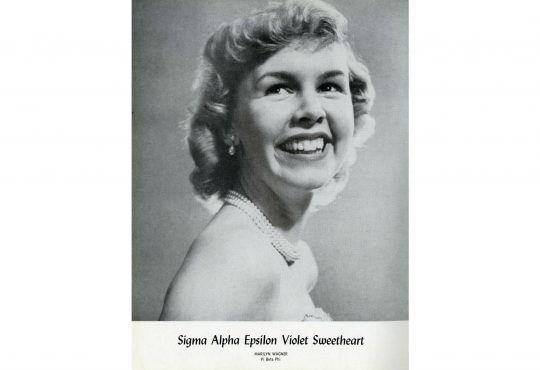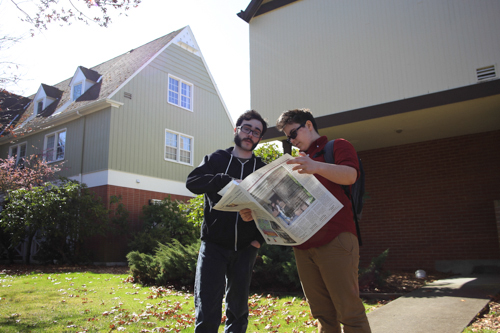This Letter to the Editor is in response to C.J. Quierolo’s letter in the March 7 issue of The Trail.
Dear C.J.,
I have read not only your article in the Fall issue of Wetlands but also your March 7th “Letter to the Editor,” in which you claim that “Greek Life is inherently heteronormative, exclusionary, elitist, secretive and that many queers on this campus feel unsafe around members of Greek Life.” As a queer, “gender non-conforming,” member of Greek Life, I have a number of objections to your claims.
First of all, of course it is impossible to overlook the hetero- and cisnormative history of Greek organizations. However, considering that the vast majority of sororities and fraternities were founded prior even to the founding of this university—and almost a century before the incorrect notion of the gender binary was challenged— such hetero- and cisnormativity is more a result of the age of these organizations than their “inherent” nature.
Indeed, as Becca Duncan claimed in her article, I don’t think it’s the case that Greek houses on this campus are heterosexist. I say “Greek houses on this campus” not because I believe our houses to be innately “special” but because, unlike you, I refuse to speak in such broad generalizations regarding the greater Greek and queer communities. I do know firsthand, however, that the chapter of my sorority on this campus is far different from chapters on others in both its composition and attitude. When my sisters use the term “date to formal” instead of “boyfriend,” when they compliment me on my suit, when they say “hi” to my girlfriend in the SUB, I feel not just “included” but welcome. They don’t do these things because of your article, but because they love me as a sister and, therefore, strive to make me feel comfortable, happy, and loved.
You claim, “sexual orientation and gender identity are by definition playing a role in the [recruitment] process,” and I agree that they do. However, I would argue that the role they play isn’t one-sided. The greatest challenge I faced in choosing to go through recruitment wasn’t fear of others’ homophobia or misinterpretation of my gender identity/expression, but rather my internalized homophobia and, therefore, false anticipation of negative reactions. That anticipation, that fear was due, largely in part, to people like you, C.J., and I can only conjecture as to how many queer students opted not to go through recruitment this year because of your article— how many queer students missed out on the opportunity I had to find a community based upon common goals and values. Furthermore, because queer students, fearful of the “Greek system,” don’t go through recruitment, they can’t help the system change to be more inclusive.
Instead, Puget Sound’s Greek community works and continues to work on being more inclusive— not only to the LGBTQIA community but also to other minorities who may feel excluded from our organizations. Puget Sound’s Panhellenic and Interfraternity Councils have met to discuss ways to be more inclusive, and a number of individual Greek houses have held chapters discussing the issue as well. These conversations are not the “putting a rainbow lapel pin next to your Greek letters” of which you write, but rather challenging, heartfelt conversations on how to make all our brothers and sisters feel not just “safe” but loved, welcome, and home.
Finally, I find it regrettable that you, speaking on behalf of “some of us queers,” feel “we won’t be having a good faith dialogue” because, from what I have seen, the Greek community is more than happy to have a good-faith dialogue. The fact that you, as the Editor-in-Chief of Wetlands wrote such a polemical article without publishing a dissenting opinion is, in my opinion, simply poor journalism and an abuse of your position as a gatekeeper to the dissemination of information on this campus. Furthermore, it is exactly the opposite of dialogue. It’s monologue and, more specifically, your monologue, speaking on behalf of a diverse and multifaceted community— one of which I am also part.
C.J., when you speak for me, you silence me. When you create dichotomy, you end dialogue. Instead of hiding behind sweeping generalizations and divisive polemic, join a conversation that IFC, Panhell, Q&A, Beyond and more ought to have. Your “us” versus “them” diatribes can only go so far. Let’s work together to bring the two communities I hold so dear closer in kindness and understanding.
Yours,
Emma



